Wet Cement
Matawan, NJ USA
Number of employees: 4
Wet Cement helps unlock fearlessness to drive personal, professional and business growth. They transform behaviors and mindsets through training, coaching, consulting and keynote speaking services focused on leadership, inclusivity and business development. They have committed to pledging their profit and time towards the community.
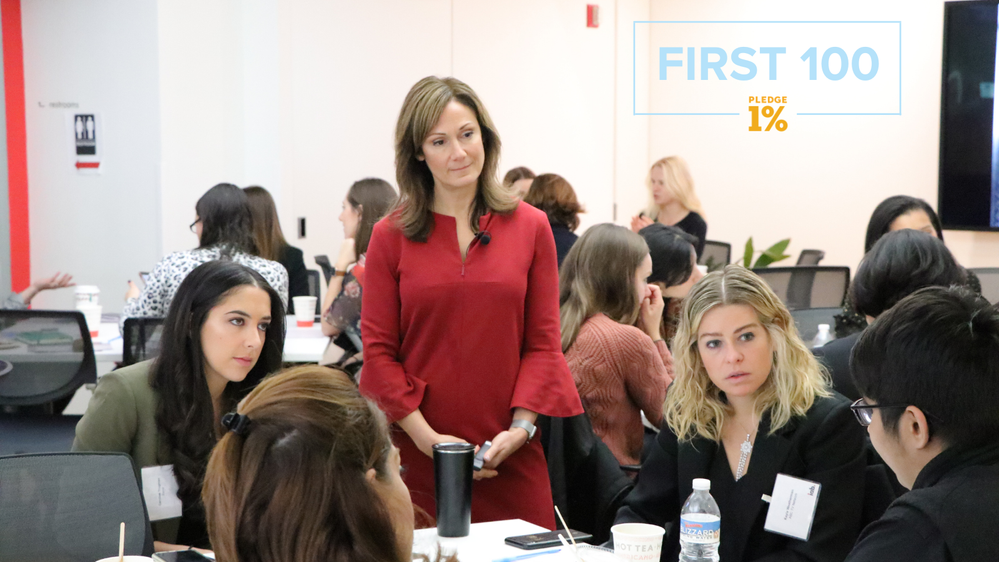
I provide counsel (at no cost) to the Founder of the non-profit Working for Women, Beth Bengtson, and serve on their Business Development Committee, to help drive awareness of this incredible non-profit that supports the socioeconomic empowerment of women. Just this week I had a coaching session with her to set her up to make a positive impact at an upcoming speaking engagement at a Room to Read fundraiser. I also pledge a minimum of 1% of our profits to their organization–but it generally ends up exceeding that amount.
We provide FREE workshops for women, young leaders and Entrepreneurs achieve their potential. Topics include how they can build more gender equitable cultures, network to drive win-win relationships and success and understand their impostor syndrome and limiting beliefs and learn how to overcome them. The most recent one was this August to celebrate Women’s Equality Day. I’ve also done programs for the IAB, Disability:IN community, Princeton Mercer Chamber of Commerce, Diversity Alliance for Science and Rutgers Entrepreneurial Pioneers Initiative, among others.
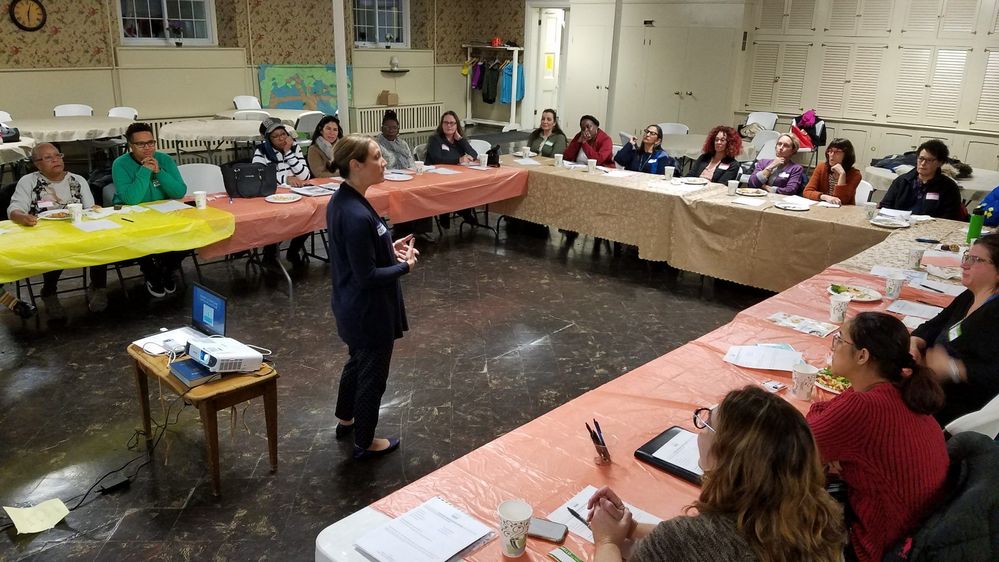
We regularly provide pro bono coaching to help women advance at work, and other aspiring or early-stage Entrepreneurs on how to build their businesses (when we believe in their vision and mission). Within the past month alone, I’ve coached Erin Lowrey, an entrepreneur providing services to enhance Emotional Intelligence amongst small-to-mid-sized businesses.
I also regularly provide guidance and advice to other entrepreneurs on how they could and should pursue receiving their diverse certifications, whether they are owned by someone with a disability, woman, LGBTQ+ community member, Racial/Ethnic minority or veteran.
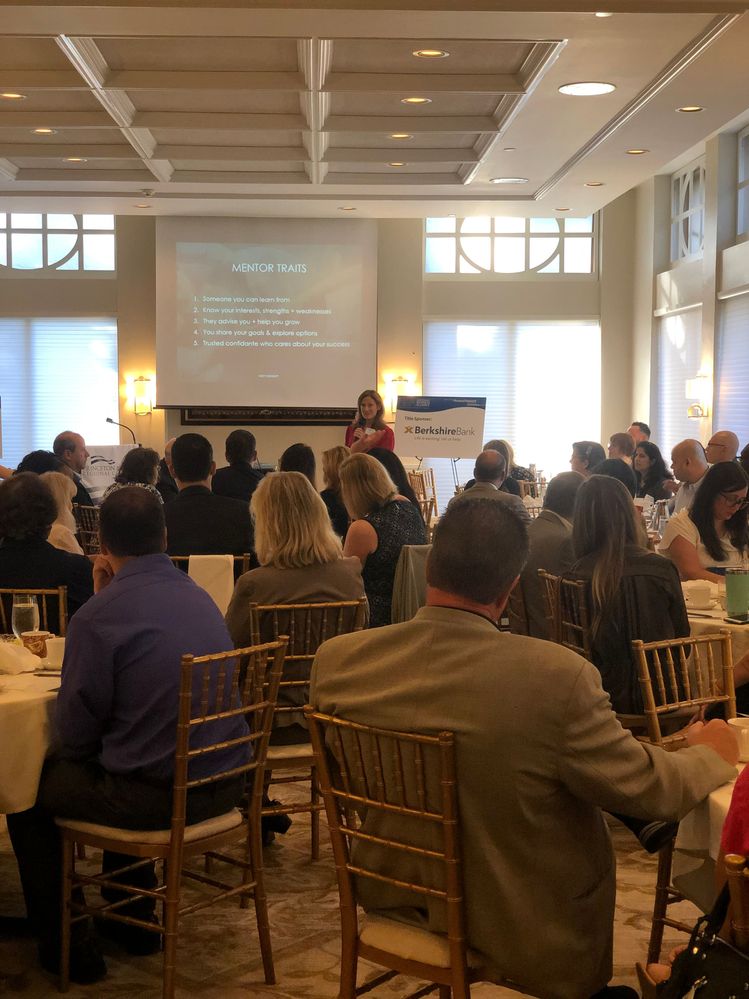
Our biggest challenge is growing our business and marketing our programs, because the more we make the more we give! The pandemic negatively impacted our business in a major way, and we are re-building now. We would really appreciate help with marketing and promoting Wet Cement.
Their #1 tip or advice for companies?
Aligning our impact program with our mission is what has been most critical and makes it easy to provide the greatest value for the work that we do.
Pledge 1%’s #WomenWhoLead series celebrates female leaders who are paving the way for the next generation. While our featured leaders come from a variety of backgrounds and industries, they are united in their efforts to promote equality for all women in the workplace. We’ve asked them to share a bit about their journey to success, as well as lessons they’ve learned along the way.
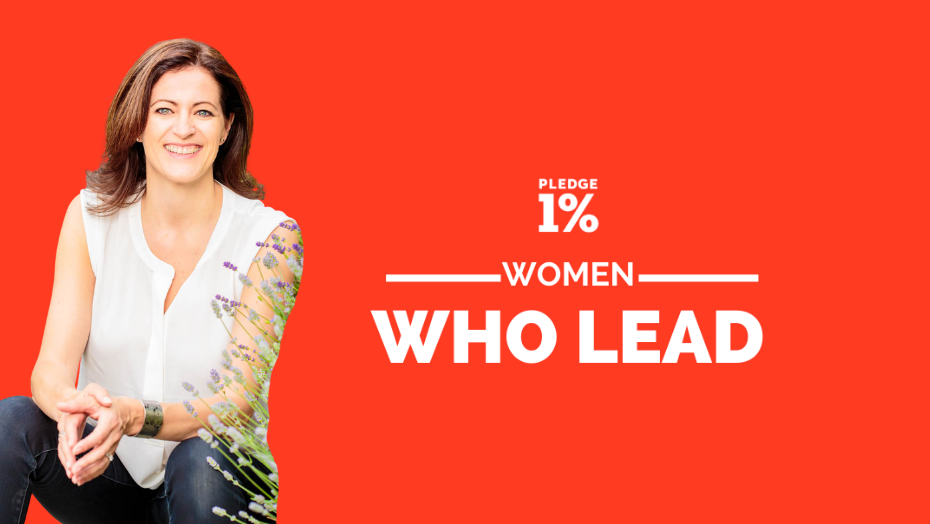
Shannon Emmerson
Founder and CEO, Forge & Spark Media
Vancouver, BC, Canada
What is your current role? Briefly describe in 1-2 sentences.
I lead and support our killer all-women content marketing agency in delivering premium service to our amazing purpose-led clients, and in our growth (we’re aiming for mightier, and kinder, not bigger).
What’s the best part of your job? What do you enjoy the most?
The best part of my job is my team. I LOVE that we always take time to connect as people first, and that everyone feels open about sharing both points of pride and challenge in our work. It always reminds me always of how warm and resilient people are, and how lucky I am to be surrounded and supported by some of the best.
We’ve all faced personal and professional challenges these past two years – what motivates you to keep going?
Everyone on our team has been challenged over the past couple of years, in big ways as well as in small but persistent ways. We have all been worn down from time to time, including myself. I’m motivated sometimes by remembering that I’m the old and wise one among my crew and that they are watching me for cues. What they don’t know is that I’m watching them, absorbing all of their energy and hope and channelling it into my next sentence or action.
What’s the best piece of advice you ever received?
Take the time to pause. Even a breath can save, ground, or restore you.
What does generosity mean to you?
It’s the moment when you’re tempted to keep something to yourself for your own benefit or gain, and you don’t–and there’s a kind of smile that starts around you because of it.
How do you feel businesses can play a larger role in solving today’s biggest challenges? Do you have any specific stories or examples from your work or colleagues you can share?
Change starts with every individual. We all have the profound power to affect others, with our words and actions and attitudes. We know that as humans. I firmly believe that this extends to business, too. As a leader — whether as the head of a company or of a team or of your own project or assignment — you get to choose what you care about and make and contribute time and energy and passion to. For me, as a writer and creative and mom, told I had no talent in business, it was about getting over that and creating a unique work model where other people who’d been taught — incorrectly — that they couldn’t own or run a business, could. And not only that but there were others keen to teach and support and guide, and they could too, in turn. You can grow business and pride together, it turns out.
If you could describe yourself in one word what would that be and why?
Kind. Because it matters so deeply on a human level to simply be seen, and witnesed. We can be going through the lowest moments without showing it and need, always, that human gesture to remind us of our dignity and worth.
If you could pick a song to guide you through 2022, which song would it be?
Jenny Lewis, Puppy and a Truck. This is darkly comic pop-country song about a woman finding her way on her terms, armed (after some tough times) with something that makes her feel like she can take on the world, and something dear to love (who loves back). “Shut up. Get a puppy and a truck.” How can you not love that?
What are you looking forward to this year? Are there any goals (personal or professional), activities, or experiences you are excited about?
We’ve applied to become a BCorp and whether or not we make it this round, I’m inspired by the community and by the thoughtful changes that starting this journey has prompted.
Originally posted on candorthreads.com
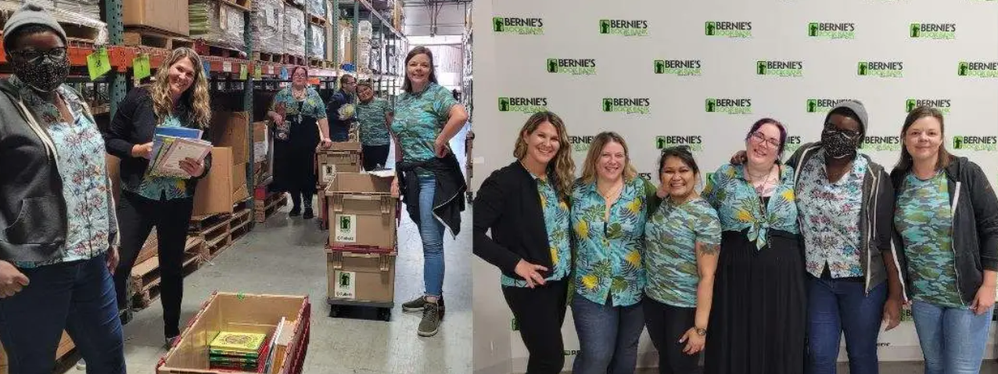
Here at Candor Threads, we’re always finding ways to live up to our mission and core values. Philanthropy is one of our favorite methods of checking all the boxes.
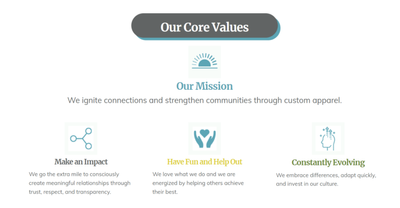
How We Give:
When a company is trying to ignite connections, strengthen communities, make an impact, and constantly evolve, all while having fun and helping out (PHEW!), one of the most logical solutions is philanthropy! Back in July of 2021, we pledged to give back 1% every quarter. That 1% can be comprised of equity, time, product, or profit. For our third quarter, we pledged to give 1% of our time by volunteering at Bernie’s Book Bank in Lake Bluff, Illinois!
Bernie’s Book Bank is a wonderful organization that is truly improving the literacy rate in Chicago. They have provided more than 22 million books to children since they started in 2012! That equates to a whole lot of literacy and we were excited to donate our time to such a worthy organization.
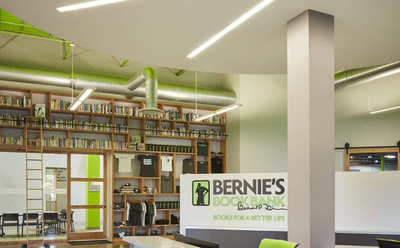
The Philanthropic Task at Hand:
We began this philanthropy journey by providing a bin in the lobby of the Green Exchange (our office building) to round up any gently used children’s books from other companies within our walls. Upon filling our bin with close to 100 books, we threw on our custom shirts, loaded our donations in the car, and off we went to Bernie’s! From the moment we entered the building, we were in awe of this massive operation. The facility is beautifully inviting and its mission is clear with children’s books bursting through the seams!
Our team was escorted to the back of the building where we came upon a number of large boxes, filled to the brim with children’s books. Our mission was simple: collect the designated number of books per box and fill our own rolling carts until full, then top each bin off with plastic totes. Once completed, a lucky group of young readers will receive 6 books to cherish and call their own. By the end of our time at Bernie’s, we had collected/sorted approximately 15,000 books for 2500 kids in Chicagoland!

Making an Impact:
Philanthropy is so important to us and we felt great knowing that we made an impact on Chicago’s youth. We’re so thankful to Bernie’s Book Bank for allowing us this opportunity. Special thanks as well to our office mates who took the time to help us with this successful endeavor. If you would like to donate your time or dollars to Bernie’s Book Bank we highly recommend them for your next philanthropic project!
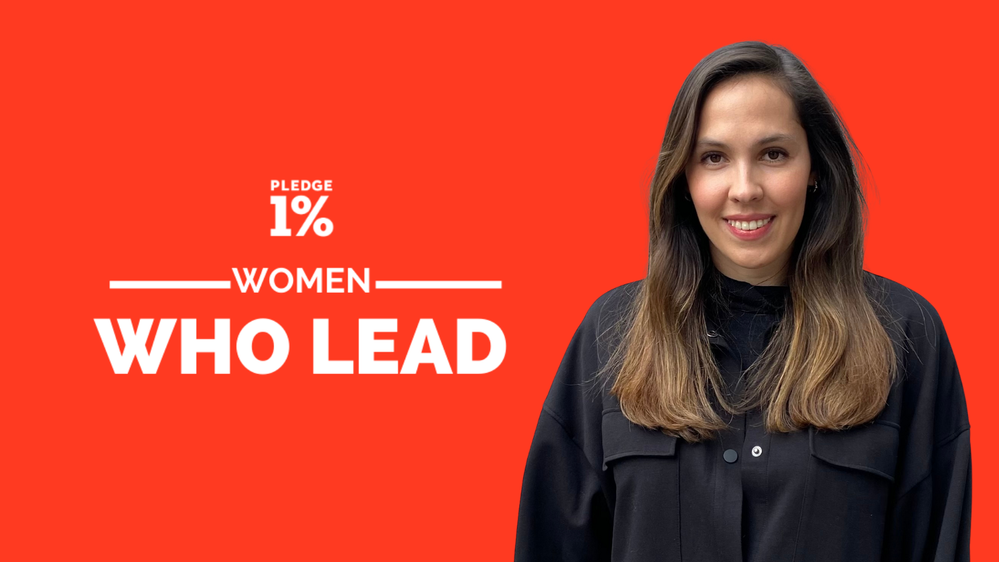
Pledge 1%’s #WomenWhoLead series celebrates female leaders who are paving the way for the next generation. While our featured leaders come from a variety of backgrounds and industries, they are united in their efforts to promote equality for all women in the workplace. We’ve asked them to share a bit about their journey to success, as well as lessons they’ve learned along the way.
Nour Maatouk Yabra
Product Design Group Manager, The Ksquare Group
Seattle, Washington, USA
What is your current role? Briefly describe in 1-2 sentences.
I lead the Product Design team, ensuring that all of our deliverables meet the standard of excellence that we set for ourselves, from a quality, budget, and time perspective. I also work to ensure the current and future success of my team by encouraging professional development, fostering a culture of collaboration, and support, helping resolve blockers, and maintaining constant communication with upper management.
What’s the best part of your job? What do you enjoy the most?
I love how we have been expanding our view of what our ultimate responsibility is as Product Designers. Through regular talks and debates, we have been growing our knowledge of key principles of design such as accessibility (a11y), inclusivity, and more. Armed with these new skills, we’ve been able to dramatically improve the impact of our work. It’s exhilarating to see how seemingly minor design aspects can have such a huge impact on some people’s experience based on their unique needs and expectations. It is very satisfying to know that, more and more, we are identifying those needs and designing accordingly, allowing people to have access to systems, products, and tools that they otherwise would not. There’s almost nothing better!
We’ve all faced personal and professional challenges these past two years – what motivates you to keep going?
Being a part of a team and organization that’s growing is so motivating. It feels like such a special time for us at The Ksquare Group – like we’re all in the foxhole together relying on each other to be our best. It’s incredible to look around (virtually at least) and see everybody giving their best, and knowing that I need to do the same. And knowing that we all play such an important role in empowering gets me out of bed in the morning fired up about the day ahead because I know that the decisions I make and the actions I take today have a direct impact on the success of the team and the entire organization.
What’s the best piece of advice you ever received?
I actually heard this piece of advice recently and it was so simple but so profound to me. It was this – make being genuinely happy for other people’s success become your superpower. At the end of the day, what’s underneath most of the things we all try to achieve is a desire to be noticed and valued. So, if we make it a mission of ours to look for the successes of others – great and small – and genuinely celebrate that success with them, we can literally change the world. Imagine if more people around us each day felt affirmed and valued instead of insecure and overlooked how meaningful that would be. And what I love about this advice is it helps me get my focus off myself and onto others, which is the place I want to live rent-free.
What does generosity mean to you?
I feel like to be generous is to give not from my excess, but from what I hold dear. It requires sacrifice. Related to the good advice I mentioned above, one area I’m working on being more generous with is my attention. With every year that passes, as I take on more responsibility in my career and personal life, there are more and more demands on my attention. So, I place a high value on my time and what I dedicate my attention to. And what I’m learning to do is be present and in the moment with whoever I’m with and give 100% of my focus to that person. It’s easy to get distracted and divide my attention, but giving everything I have to the person across from me is a beautiful picture of generosity, and something I’m actively working on to this day.
How do you feel businesses can play a larger role in solving today’s biggest challenges? Do you have any specific stories or examples from your work or colleagues you can share?
So many of the challenges that the world faces today stem from a lack of empathy and understanding, even unintentionally. This applies to business and design as much as it does politics and economics. And as a Product Designer, I realize now just how big a role empathy plays in the solutions that we create. The first step of the Design Thinking process is to empathize, and since starting my design career, I’ve come to realize that without this first step, there can be no true innovation. Too often we create solutions that are looking for problems, and as a result, end up with a product or service that doesn’t really fulfill the users’ needs. Only by truly understanding users’ needs and pain points can we arrive at a solution that will help ease those frictions.
I saw this truth play out first-hand a couple of years ago when working with the Boy Scouts of America (BSA). I give a lot of credit to the BSA for realizing the importance of adapting their 110-year-old organization to better serve the youth of the 21st century. For example, at one point we were redesigning one of the core apps of the organization which was previously built purely for the parents and volunteers who ran the program to track and update the scouts’ advancement. Early on, however, we came to realize there was an opportunity to engage the scouts directly and give them the tools to stay motivated while working on their merit badges and awards. So we retired the old way for them to keep track of their advancement (paper and pencil) and designed a new mobile app from the ground up that better suited their needs and expectations.
If you could describe yourself in one word what would that be and why?
Work-in-progress. Okay, depending on your definition of a hyphenated word that may technically be 3 words, but who’s counting?
I think work-in-progress is a fitting word for this question because it says I’m on the journey to where I want to be and who I want to become, but I still have work to do to get there, and that’s okay.
I’m proud of who I am as a person, the relationships I’ve built, the lessons I’ve learned, the progress I’ve made in my career, and the things I’ve given back along the way. But at the same time, I’m excited and even impatient at times about the woman I still want to become, the things I want to accomplish, and the difference I want to make in the world.
What are you looking forward to this year? Are there any goals (personal or professional), activities, or experiences you are excited about?
On a personal level, after finishing my master’s degree in Spain and living in Mexico for a few months, I’m getting ready to move to a new country and build a life there. That process is always an intoxicating one for me, and I can’t wait to see what challenges and opportunities it brings.
But on the professional side, what excites me most is seeing the growth and development of my team. To continue learning new skills, developing our process, and creating products we can be truly proud of. But even more than that, knowing that I and most of my team are from Mexico means that this is an opportunity for us to show the world what we have to offer; to have our passion, creativity, and innovative spirit on display in a way it not often is. Pushing ourselves to become industry leaders here means not just advancing our careers, but becoming representatives of the country we all love, and it’s an opportunity we do not intend to waste!
Words to live by:
Nothing is obvious and less is always more.
Coleman Insights
Raleigh, NC USA
Number of employees: 28
Coleman Insights provides quantitative and qualitative research—including perceptual research, music testing, content testing, focus groups, and online discussion groups—to audio brands in the radio, podcasting, and streaming industries. They have committed to pledging their Profit, Product, and Time towards helping the community.
Since learning about the program at Salesforce’s Dreamforce conference in San Francisco a few years ago, Coleman Insights has integrated Pledge 1% and giving back into its DNA. Over the past five years, Coleman Insights team members have volunteered their time and given to charitable causes that span a wide range. This includes loading and unloading at the Urban Ministries Food Pantry in Raleigh, checking in golfers for the Lung Transplant Foundation‘s annual tournament, mulching in Raleigh’s Nash Square, and making wreaths for Donate Life NC.
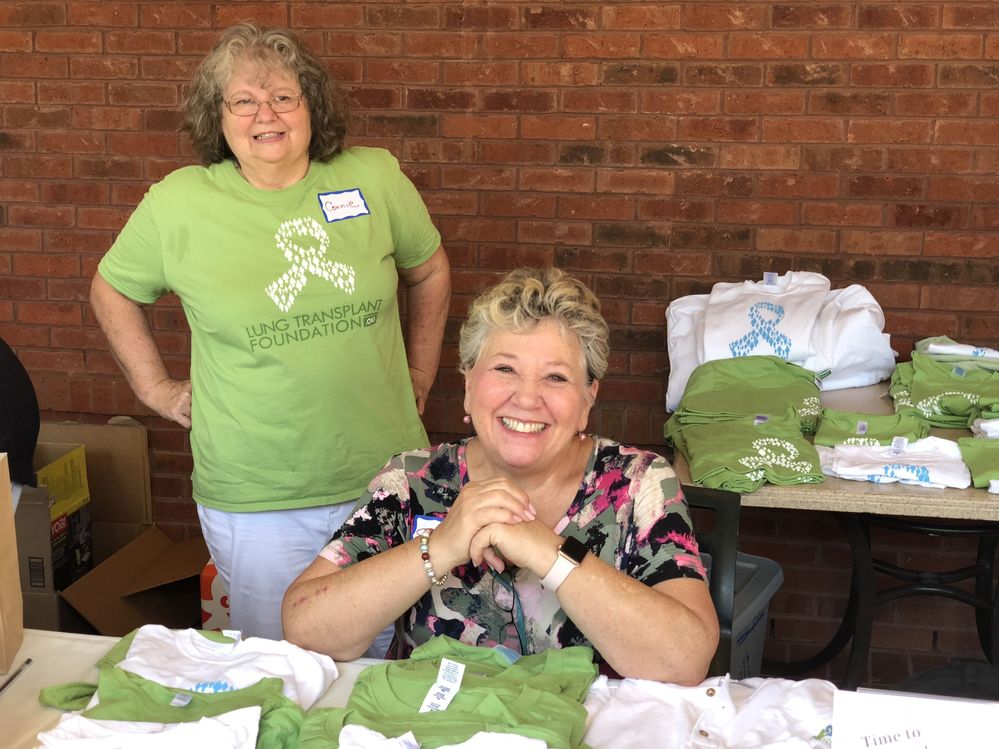
Coleman Insights hosts a Pledge 1% page on its website: https://colemaninsights.com/about/pledge-1-percent.
This past year, our relationship with Exchange Family Center in Durham, NC rose to a new level. Exchange Family Center makes children’s lives better by strengthening their families, teachers, and communities through proven counseling, coaching, and training. Coleman Insights President Warren Kurtzman joined the EFC board, and team members Jay Nachlis, Meghan Campbell, Eileen Genna, and Lauren Richardson have volunteered to help make the agency’s 30th Anniversary Gala a success.
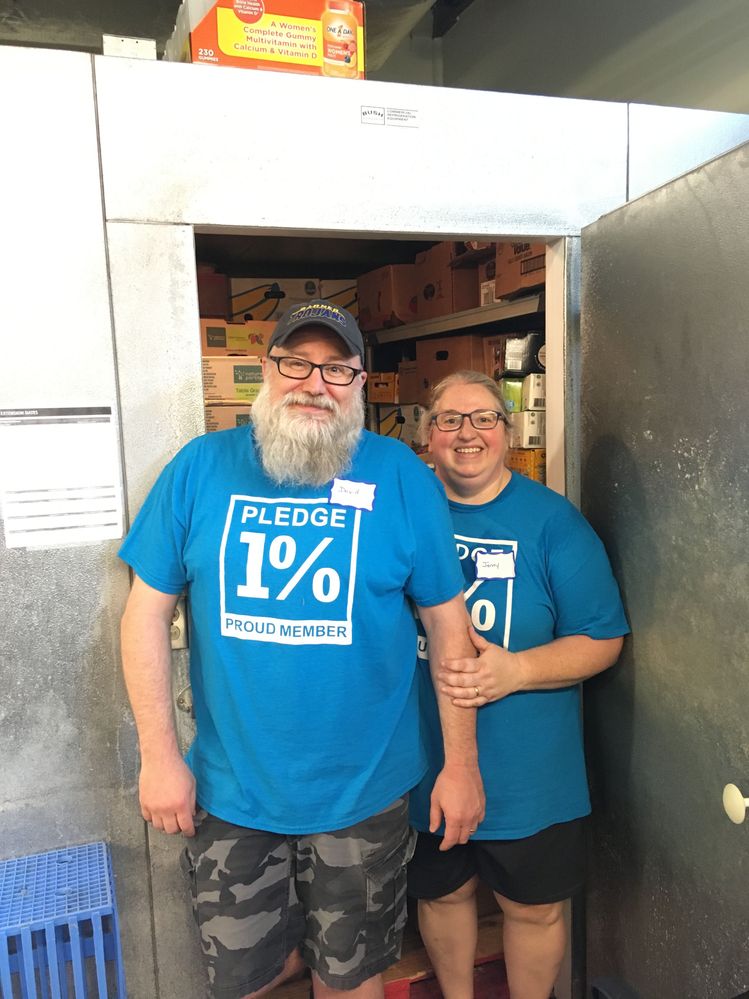
This past summer, the new Coleman Insights Culture Committee decided to focus on mental health as a company priority. This has included scheduling a family day at a farm on a Friday afternoon and fielding a team for Walk for Hope, which has helped fund millions in mental health research.
We are proud to be a Pledge 1% member and to make giving back an integral part of our company culture.
Their #1 tip or advice for companies?
It requires a core group of employees dedicated to making sure the program remains active and relevant. Not everyone will be actively involved, but a small group must be.
Pledge 1%’s #WomenWhoLead series celebrates female leaders who are paving the way for the next generation. While our featured leaders come from a variety of backgrounds and industries, they are united in their efforts to promote equality for all women in the workplace. We’ve asked them to share a bit about their journey to success, as well as lessons they’ve learned along the way.
Arleen Saluja-Westerkamp
Director of Salesforce Consulting at Agency73
San Diego, California, USA
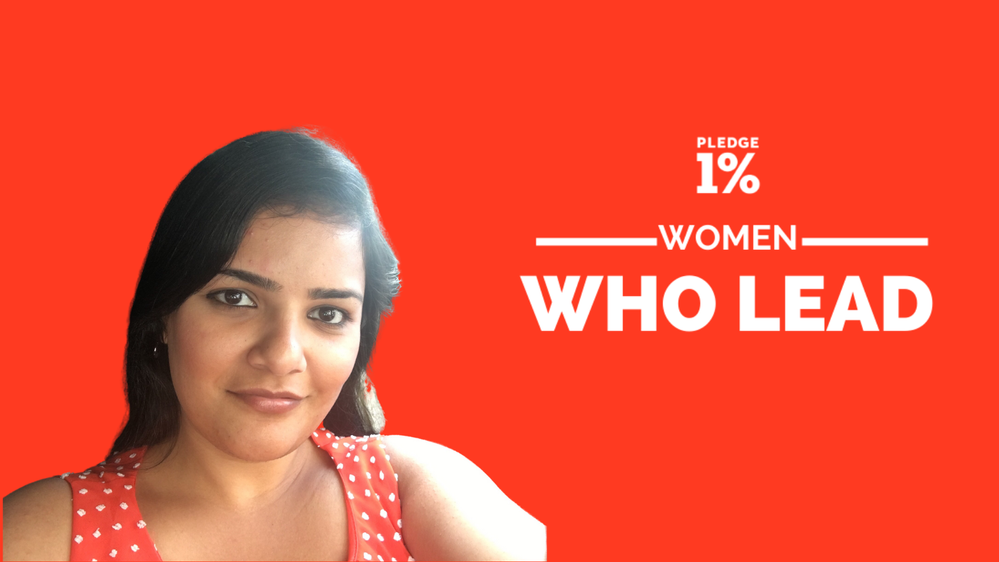
What is your current role? Briefly describe in 1-2 sentences.
I help Agency73 build their Salesforce consulting business while overseeing customer engagements, managing and mentoring the consulting team, and helping clients achieve their CRM goals through successful Salesforce implementations.
What’s the best part of your job? What do you enjoy the most?
Apart from helping customers change the way they do business, my favorite part of what I do is help shape the next generation of software consultants and entrepreneurs. Getting the opportunity to influence and work with some of the smartest minds in the business is both a privilege and a responsibility.
We’ve all faced personal and professional challenges these past two years – what motivates you to keep going?
I get my motivation from our customers’ success stories. Through our software implementations, we have helped a number of businesses enable remote working for their employees. We are making a difference in these people’s lives and ultimately helping companies support safe work environment for their employees.
What’s the best piece of advice you ever received?
When I find myself judging another woman, I get reminded of what someone once told me – the first thought that goes through mind is what you have been conditioned to think. What you think next, defines who you are. We are all struggling to find our voice and our place in this world, and a little empathy goes a long way. Amy Poehler once said – “It takes years as a woman to unlearn what you have been taught to be sorry for. It takes years to find your voice and your real estate”.
What does generosity mean to you?
Generosity is the ultimate human spirit. If you want to be anything in life, be generous! Generous with your time. Generous with your love. Generous with your support. Generous with your humanity. And generous in the way you treat people.
How do you feel businesses can play a larger role in solving today’s biggest challenges? Do you have any specific stories or examples from your work or colleagues you can share?
Businesses help the society grow and flourish. They add jobs and empower people to attain a better quality of life. Businesses help provide purpose and direction to the young adults who are starting new careers. For me, working for a small business provides me the opportunity to use technology to help make people’s lives easier and more efficient. Once, I built a software automation for a customer, that helped them save 2 hours everyday by not having to do manual data entry. This allowed them to be able to leave work earlier and be home in time to have dinner with their child.
If you could describe yourself in one word what would that be and why?
Passionate. I am passionate about helping people and making a difference in the world. I try to put passion into everything I do in my personal and professional life. Passion drives my decision-making and goal setting.
If you could pick a song to guide you through 2022, which song would it be?
Run the World (Girls), Song by Beyoncé
What are you looking forward to this year? Are there any goals (personal or professional), activities, or experiences you are excited about?
Professionally, I am looking forward to growing our team and our company. Getting the opportunity to help guide software consultants in their career path. Personally, I am looking forward to getting a little more of the “normal” back in this COVID-present world. I don’t know if we can ever completely get rid of the virus, but I hope, as a world, we keep getting better at co-existing with it while staying safe and healthy.
Is there anything else you’d like to share?
I moved to the USA about 15 years ago, as a scared young Indian girl, with lots of hopes and dreams. With hard work and passion, I worked my way up to be a Director at a software company. My journey has taught me to have empathy and compassion for people who are going through their own journeys. I never let myself forget how fortunate I have been and how important it is to give back to the community that helped me flourish.
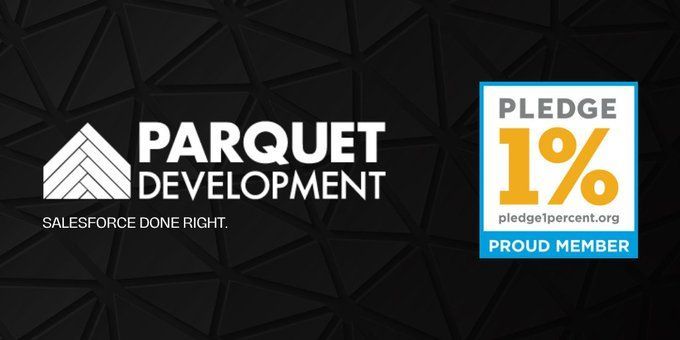
Originally published on Parquet Development.
Parquet Development announced today that it has joined Pledge 1%, a global movement to create a new normal for companies of all sizes and stages to have a positive social impact through their business. Parquet Development is joining over 12,000 companies around the world who have committed to Pledge 1% of either their product, profit, equity, and/or staff time to whatever charity of their choosing.
Parquet Development is proud to announce its commitment to donate 1% of its time (pro-bono Salesforce services to eligible non-profits) and/or a percentage of its revenue. If you’re a non-profit organization in need of Salesforce services, please contact us to learn more about this offering.
Parquet Development is exceedingly proud to join the Pledge 1% community and encourages other companies to take the pledge and leverage their business as a force for good.
To learn more about our program and commitments, view our Social Impact page.
Read the full announcement here.
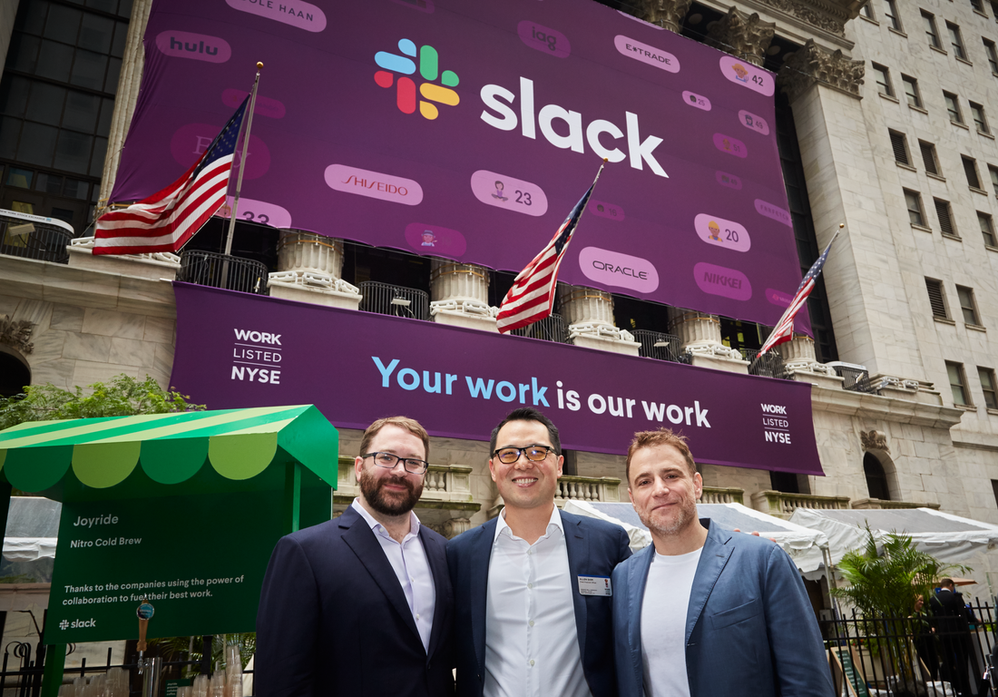
This story is part of Pledge 1%’s Impact Award Winner feature series. Learn more about the Cloud 100 List and other Pledge 1% members that were featured on the list here.
Why did you first decide to join Pledge 1%?
Being humble and being of service to others has always been incredibly important to our leadership team and a core part of the Slack culture. We joined Pledge 1% in 2017 to formalize our program and to deepen our philanthropic work. That year, every employee was given a copy of Bryan Stevenson’s Just Mercy. The book came with a note from our CEO urging us to remember the most vulnerable members of our society. As we started thinking more about the issues, we realized no one was really focusing on the formerly incarcerated population and we wanted to see how we could tackle some of the structural injustices they face as a tech company. So we piloted Next Chapter, a software engineering apprenticeship program that helps returning individuals build careers in the tech sector. Next Chapter has since expanded to 14 hiring partners – including PayPal, Zoom, Dropbox, Square and Asana – many of which are also Pledge 1% members.
As we built our impact program, we knew that to be successful, we also needed to change the culture within our company and engage our employees in order to address the stigma around incarceration. Our leadership gave us the time and space to think about how to best approach this issue and find a solution that engaged employees from the very start. We have since replicated this approach at every company that Next Chapter has expanded to: we organize an all-hands meeting, we train managers, and we host safe and open discussions about why this is important, where employees can raise any questions they have, so that they understand what we are trying to achieve. We’ve learned that bringing all employees into the program and educating them about the issues is an effective way to ensure they are not just onboard, but passionate about supporting our larger mission.
What does your Pledge 1% program look like in action? What does your program involve?
Our goal with Slack for Good is to increase the number of underrepresented individuals working in the tech space. We were honored to win the Pledge 1% Impact Award in 2018 for our Next Chapter program, which at that time was just at Slack. It was small – very much a pilot – and although we were still working on proving the model, we were really excited that we were trying something new.
Since then, we’ve proven that the model works – we have a 100% success rate, meaning everyone who has gone through the program has received a full-time job offer. In total, over 31 people have successfully gone through the program and reentered the workforce as software engineers.
Our goal today is to scale this program and help other companies bring Next Chapter to their organizations, so they can hire these incredibly talented individuals and play a part in expanding access to tech careers for people returning home from incarceration. To help accelerate this effort, we recently published a playbook with the Aspen Institute that helps companies break down the barriers to hiring this population.
Our Pledge 1% program includes other initiatives as well. We’ve committed 1% of company product to support thousands of nonprofit organizations with free or discounted plans. This effort was especially impactful during the pandemic with the shift to remote work and the need for better tools to support digital collaboration. For example, we provided product to universities and scientific research groups, like the Covid Tracking Project, and community relief organizations, like Frontline Foods.
We also commit 1% of company time to support employees in volunteering not only their time but also their expertise, and we’ve continued to expand that commitment, to seven days a year. It’s amazing to see how much faster NGOs can reach their goals when they have a little more resources and expertise to supercharge their programs.
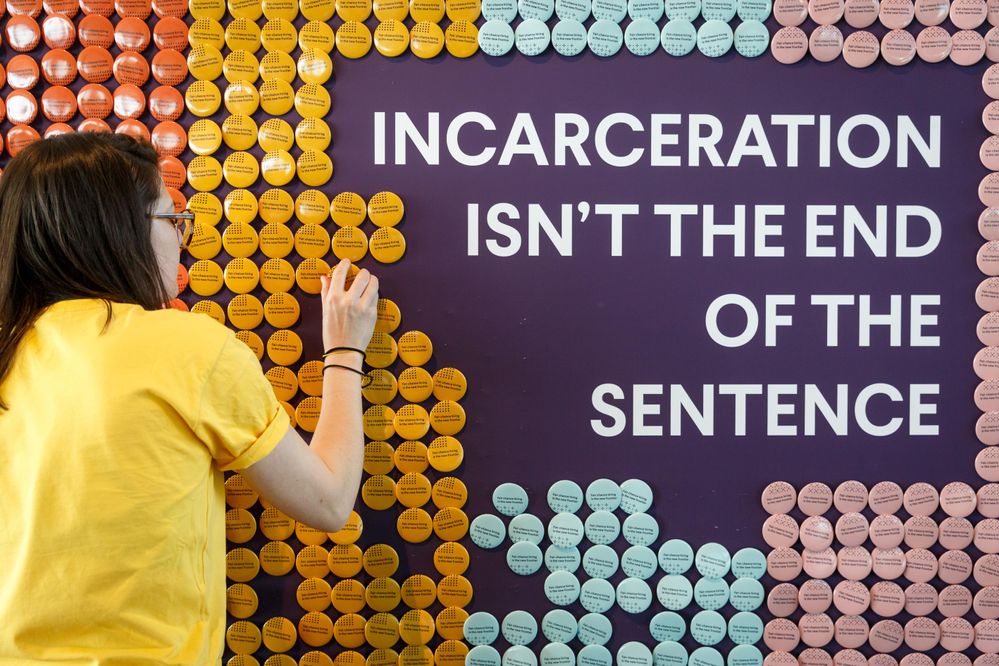
What have been some of the greatest highlights or impact moments to date?
We could never have been successful without our partners. For example, through our wonderful partnership with The Last Mile, W.K. Kellogg Foundation and FREEAMERICA, we’ve been able to work with people who have experience in racial equity and criminal justice reform to build and scale Next Chapter. We’ve also worked with a lot of amazing thought leaders like John Legend and Common who are passionate about this issue and have helped us raise awareness about the importance of these programs.
With the Aspen Institute, we’ve launched a new joint initiative called Rework Reentry that is helping bring Next Chapter to more companies throughout the U.S, leveraging the expertise and reach of Aspen Digital and the Aspen Institute’s Criminal Justice Reform Initiative. In addition to the tactical blueprint we’ve created that companies can follow to expand career opportunities for returning citizens, we’re also working with Aspen to convene key stakeholders in the tech and justice ecosystems to educate them on how tech companies can help move the needle on this issue. And together we’re elevating documentary storytelling about the challenges faced by re-entering individuals, like the “Home/Free” documentary short film series created in partnership with Next Chapter, FREEAMERICA and the Equal Justice Initiative.
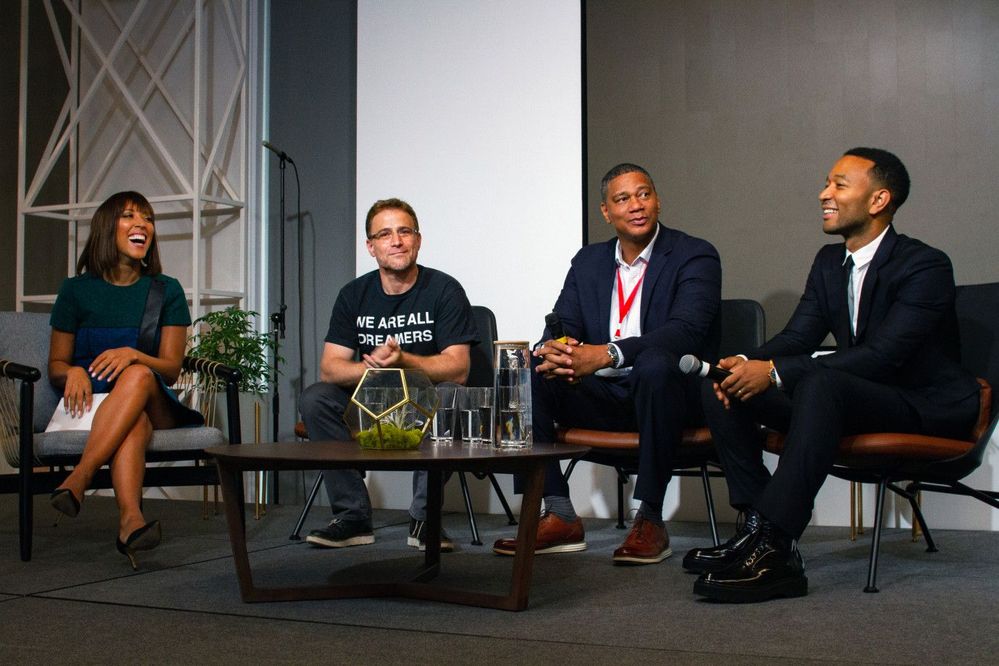
How has Pledge 1%’s framework helped you scale your impact?
The Pledge 1% framework has helped us invest in programs that are aligned with our values and ensure that our product can be accessed by those who are working to make the world a better place. It has also provided a framework for us to keep our employees proximate to communities they’re serving.
Why did you decide to pledge equity and how has this helped you scale your impact (if applicable)?
We knew as a young company that this was a priority to us, and we wanted to embed it in our priorities from the start. This early commitment of 1% of company equity has allowed us to scale our impact as we’ve grown and meaningfully pursue Slack for Good’s mission to increase the number of historically underrepresented individuals in the tech industry, in particular through Next Chapter.
Have recent events like the pandemic (and other crises) impacted your program? If so, how?
Next Chapter has continued to thrive during the pandemic by facilitating remote apprenticeships. In fact, remote work has allowed apprentices to return to their communities and be mentors and stable pillars of employment. This is helping employ people in communities that are outside of traditional tech hubs like San Francisco.
Through our 1% of product donation, Slack for Nonprofits became crucial during the pandemic. As organizations went from working in the office to working remotely overnight they needed collaboration solutions to work as distributed teams. Through our Spack for Nonprofits program, we were able to help nonprofits by giving them free and discounted plans so their important work wouldn’t skip a beat.
Can you share any key takeaways or learnings you’ve gained while implementing your program?
Our Rework Reentry Playbook contains all of the learnings and steps companies need to adopt Next Chapter at their organizations. It tells you exactly what you need to do to move the needle on this issue, especially as a small company.
Looking back, we’ve learned that it’s easier to start with over indexing on providing support and then making adjustments as the programs scale. Your business demands will only get more intense as you grow – so don’t delay, start where you are now.
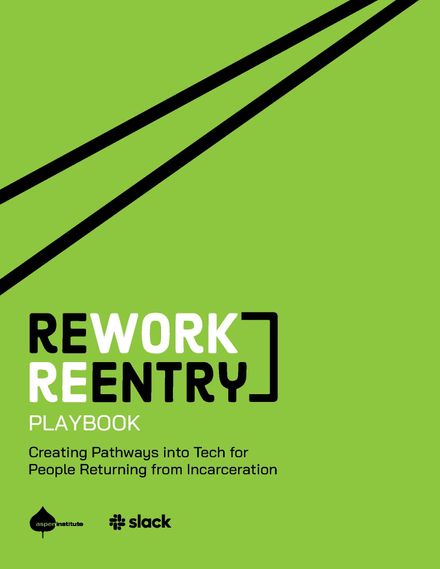
Any words of encouragement or tips you can share with companies who are just getting started?
For companies that are just getting started, It’s okay to make mistakes. You don’t have to get it exactly right the first time.
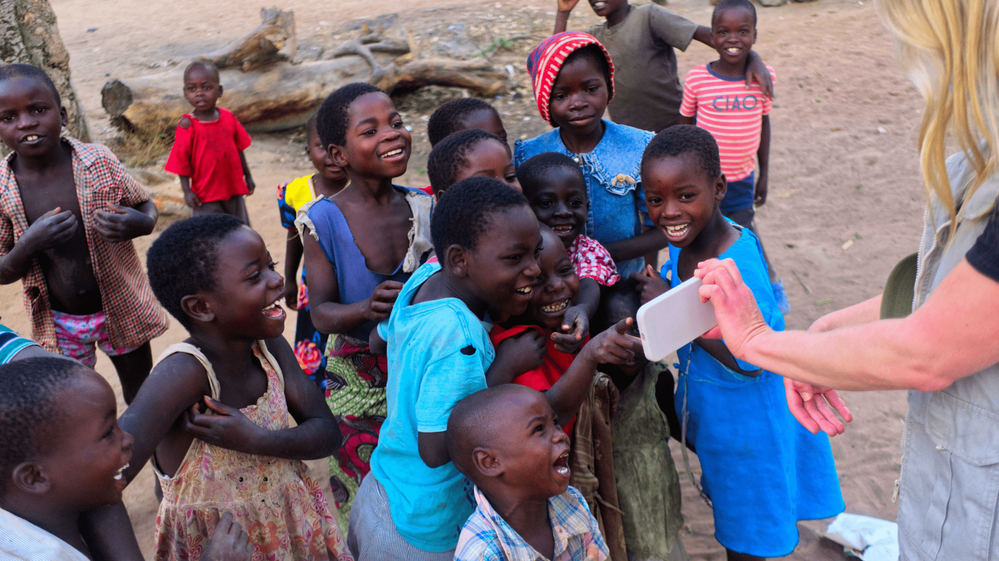
Canva with Force For Good
This story is part of Pledge 1%’s Impact Award Winner feature series. Learn more about the Cloud 100 List and other Pledge 1% members that were featured on the list here.
Why did you first decide to join Pledge 1%?
Our mission is to “empower the world to design” and one of our key values is to “be a force for good”. We’ve always had a two-step plan at Canva: to build one of the biggest companies in the world, and then do as much good as we possibly can. Joining Pledge 1% was a very natural step for us to take as part of this mission and helped us to create concrete goals for how we can be a force for good.
What does your Pledge 1% program look like in action? What does your program involve?
We joined the Pledge 1% movement to meaningfully contribute towards making the world a better place. Our 1% of equity is pledged to the Canva Foundation. This is in addition to the 30% of equity that was pledged towards social impact back in September 2021.
Through the Foundation, we’ve been able to financially support a number of charitable projects and causes such as the Aussies for Afghanistan Appeal and those impacted by the war in Ukraine. We’ve also implemented an internal donation gift-matching initiative, where we match the donations that our team commits to nonprofit organizations dollar-for-dollar (up to $5000AUD each per year) to help them amplify their impact.
In terms of our product, we’re committed to empowering schools, teachers, and nonprofit organizations by giving them access to Canva for Teams, our premium product, for free. From UNICEF, to Red Cross, to the World Wildlife Fund, we’ve seen some incredible ways that organisations are using Canva for Nonprofits to promote and champion important causes. We’re also incredibly proud to support the future of creativity by providing over 25 million K-12 students and teachers around the world with Canva for Education, for free.
Each member of our global team receives 3 days of volunteering leave each year, bringing to life the 1% pledge of our time to helping our community.
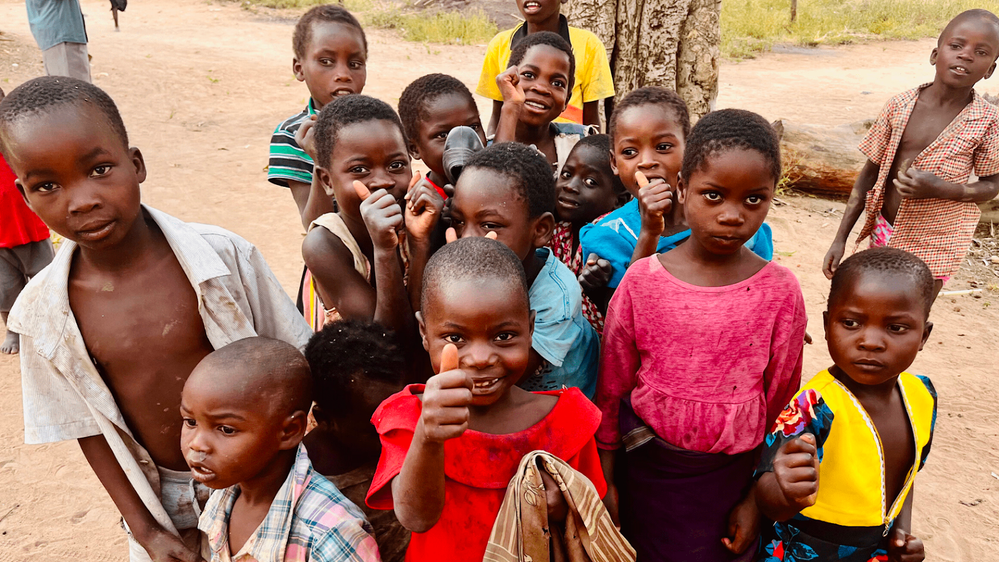
Photo from the Canva Foundation team’s recent trip to Malawi
What have been some of the greatest highlights or impact moments to date?
A huge impact moment for us was launching our first pilot program with GiveDirectly, where we distributed US$10 million of digital, unconditional cash to nearly 13,000 people in Malawi. This program also has a research component that will not only help Malawians, but future recipients of GiveDirectly programs.
How has Pledge 1%’s framework helped you scale your impact?
The Pledge 1% framework helped us bring to life a number of initiatives that allow us to live our value of Being a Force for Good. With our two-step plan in mind, the structure of Pledge 1% has allowed us to formalize our commitment to social good, create tangible goals to keep us accountable, and has helped us amplify our impact.
We’re now empowering over 260,000 nonprofit organizations with our premium product, as well as community educational workshops to upskill them with invaluable marketing and visual communication expertise. A great example is Amnesty International Australia, who curated the 21st century equivalent of picket signs that inspire followers to take action on important issues. We’re also empowering more than 25 million students and teachers each month to communicate visually in the classroom and beyond.
Through our internal donation-matching program, Canvanauts have donated a total of US$240,000 in the 2021/2022 financial year, which has all been matched dollar-for-dollar as part of our gift-matching initiative. That’s almost US$500,000 that has been donated to nonprofits by Canvanauts to help them amplify their impact!
We’ve recently been encouraging our global team to create their own Force for Good journey, and to make the most of their volunteering leave. To help empower Canvanauts to use their leave, we launched Force For Good Fridays, giving everyone the ultimate permission slip to volunteer and give back to their local community every month. In the last 12 months, we’ve had over 1,000 volunteers contribute more than 6,500 hours to over 70 nonprofits globally.
Another Canva Foundation initiative is our One Print, One Tree program — for every print order placed with Canva, we plant a tree – it’s a simple idea with a big impact. So far, we’ve planted 2.4 million trees (205 different native tree species) in over 18 sites in Kenya, Mozambique, the Philippines, Tanzania, Brazil, Haiti, USA and Madagascar, and we’ve committed to planting 5 million trees by the end of the year.
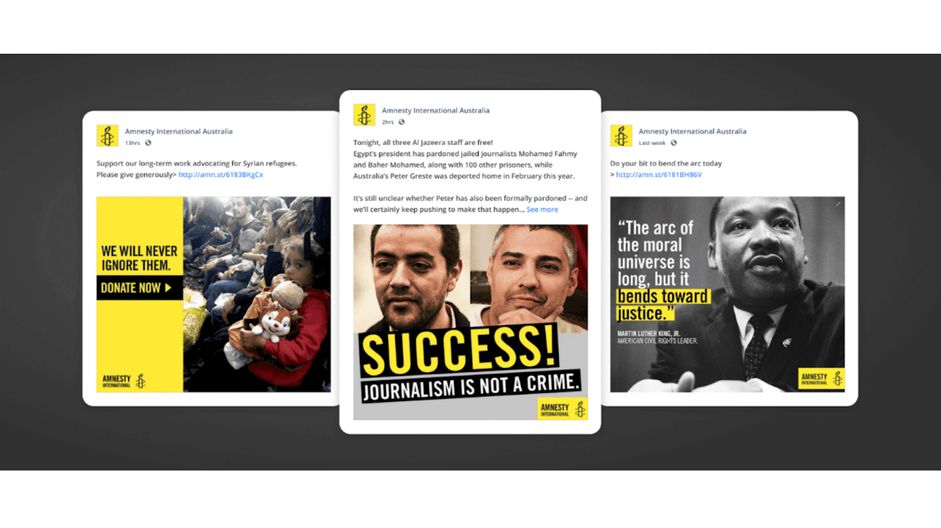
A few of the designs Amnesty International Australia has made on Canva
Have recent events like the pandemic (and other crises) impacted your program? If so, how?
During the pandemic, we needed to reimagine our volunteering opportunities. We switched to remote first volunteering, where we were able to help nonprofit organizations over Zoom. For example, through our monthly virtual Missing Maps Mapathon, we mapped over 8,700 buildings for Humanitarian OpenStreetMaps, supporting disaster relief projects in Guatemala and South Africa.
Another way we kept our Force for Good activities alive throughout the pandemic was by opening the kitchen in our Sydney office for the local community – our amazing Vibe team was able to continue using our office kitchen to prepare food for charities such as OzHarvest.
Through our equity commitment, we’ve also been able to play a small part in supporting some of the a number of recent humanitarian crises through initiatives such as the Aussies for Afghanistan Appeal and by raising vital funds to support those impacted by the war in Ukraine. Both of these programs helped to deploy and distribute emergency funds in partnership with grassroots organizations who are well-connected on-the-ground.
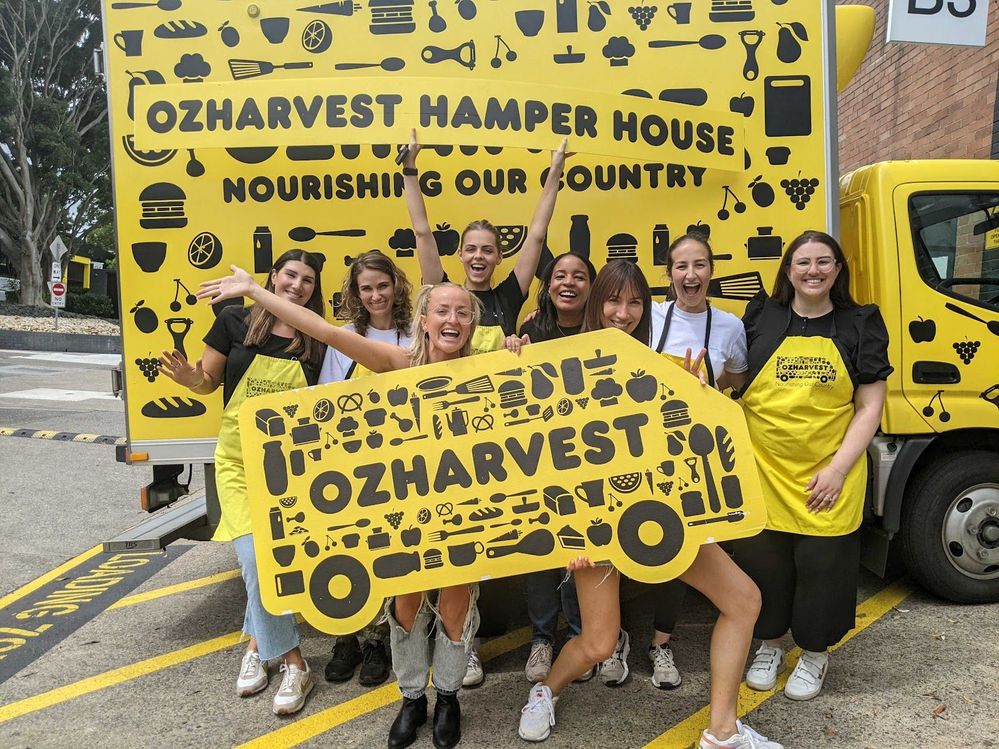
Our Employer Brand Team supporting OzHarvest for their volunteer leave
Any words of encouragement or tips you can share with companies who are just getting started?
Making a difference doesn’t have to be overwhelming — setting smaller, achievable goals is a great place to start. These keep us accountable and celebrating the small milestones is a powerful way to stay motivated and focused on your social impact journey.
Are there any future events, plans, or programs you are particularly excited about?
We’re really only 1% of the way there when it comes to our ‘simple’ Two-Step plan, but we’re so excited about the future Force For Good initiatives we have planned, and the impact they can have on the world.